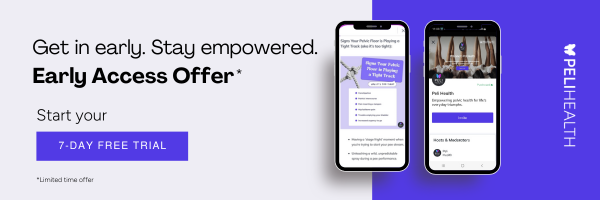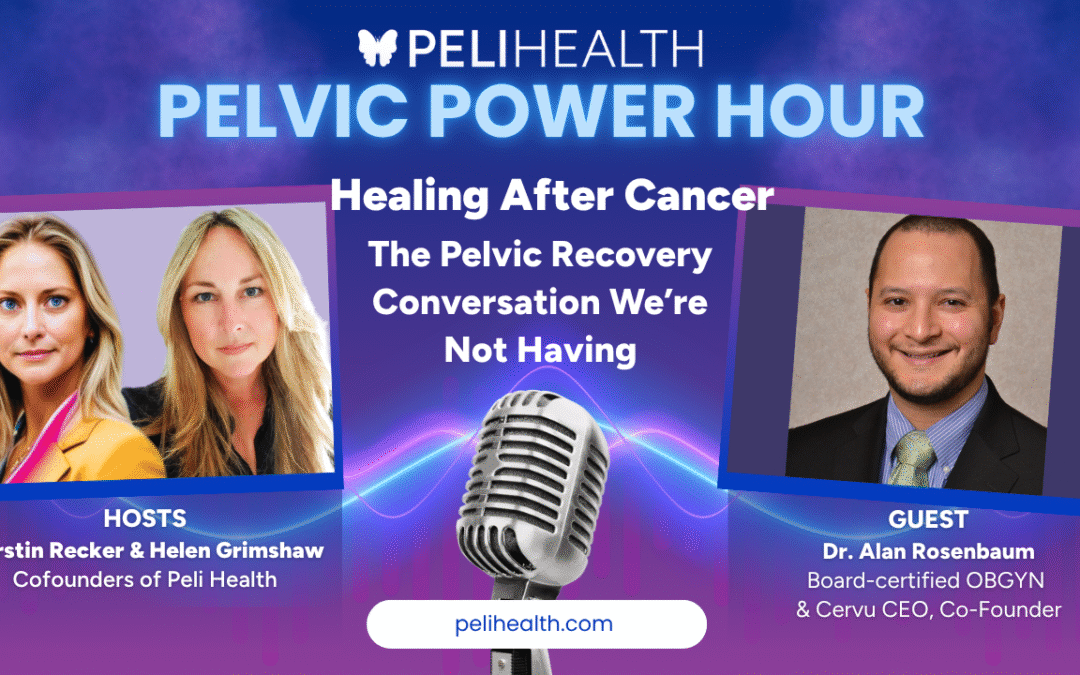Why your core, bladder, intimacy, and energy still need attention after baby — and what you can do about it
Still dealing with leaks, pain, or pelvic weakness one year (or more) postpartum? You’re not alone. Learn why pelvic health recovery doesn’t end at 6 weeks (frankly most new moms don’t have time to even think about pelvic health in their first year – hello!), and what you can do to feel strong, confident, and connected again.
Did you know?
- Up to 40% of women experience urinary incontinence after childbirth.
- 1 in 3 women report mild to moderate prolapse symptoms postpartum.
- 40% of women experience sexual dysfunction after giving birth.
These stats are not here to scare you. They’re here to say: you are not broken. And you are definitely not alone.
Whether you’re 12 months or 12 years postpartum, pelvic health still matters. Leaks, core weakness, pelvic pain, intimacy issues, and low energy are not just “new mom things” you have to accept. They are signs that your body is asking for support.
The good news? Healing is absolutely possible.
Once Postpartum, Always Postpartum
We know the traditional six-week checkup is not enough. Real healing takes time—and the one-year mark is a pivotal moment. According to research in Scientific Reports, postpartum changes can last far longer than previously assumed, especially if symptoms go unaddressed.
For some, this is the first moment you finally feel “ready” to do something for yourself again. For others, lingering symptoms just haven’t gone away. Either way, if you’re feeling “off,” it’s not too late.
Common 1-Year Postpartum Issues:
1. Leaks or urgency when you laugh, run, or sneeze
Bladder control issues like stress incontinence can persist due to weakened pelvic floor muscles. Even if you had a C-section, pregnancy itself puts pressure on this system.
2. A core that still doesn’t feel right
Diastasis recti, poor breath mechanics, and pelvic floor/core disconnection can leave you feeling weak, unstable, or disconnected.
3. Discomfort with intimacy
Pain during sex or reduced sensation can stem from scar tissue, tight or weak pelvic floor muscles, or hormonal shifts. It’s common—but not your forever.
4. Pelvic heaviness or pressure
These are hallmark signs of pelvic organ prolapse. Even mild cases deserve attention.
5. Low energy, unstable mood, or body mistrust
The pelvic floor is deeply connected to your nervous system and hormones. If you feel emotionally “off,” you’re not just imagining it.
Why It Happens
Childbirth (vaginal or C-section) and pregnancy stretch, strain, and often weaken the pelvic floor and core system. And while the body is resilient, it doesn’t always bounce back without support. Factors that increase long-term pelvic floor issues include:
- Vaginal deliveries
- Prolonged labor or large babies
- Forceps or vacuum delivery
- C-sections
- Multiple pregnancies
A weak pelvic floor can affect bladder, bowel, and sexual function, and it can even contribute to back pain and poor posture.
There Is Hope

Just like you’d rehab a knee after surgery, your pelvic floor deserves expert, ongoing support. At Peli Health, we believe pelvic wellness is a lifelong journey—not something that ends when your OB clears you at 6 weeks.
That’s why we created the Always Postpartum program: an 8-week virtual course and coaching pod led by Dr. Jane Grant, pelvic PT and holistic wellness expert. It’s designed especially for women 1+ years postpartum who are still dealing with core weakness, leaks, discomfort, or fatigue.
You’ll get:
- On-demand weekly videos
- Live coaching calls with Dr. Grant
- Movement, breathwork & core reconnection
- Private space for Q&A and support
- Lifetime access to Peli Health membership and resources
👉 Join our Upcoming Pelvic Power Pod and get small group coaching let by Dr Jane Grant, DPT + Doula
Want More Pelvic Wisdom?
Listen to our Power Hour with Dr. Ryleigh Pabon, a pelvic PT and mom of two, as she shares:

The Bottom Line
You’re not broken. You’re not late. You don’t have to live with symptoms.
Whether you’re 1 year or 10 years postpartum, it’s never too late to care for your core and pelvic health. Small steps, like breathwork, pelvic PT, and community support, can help you feel strong, energized, and connected again.
Let us support you.
Join Always Postpartum or explore Peli Health’s resources for real-life pelvic care.
https://pelihealth.com



